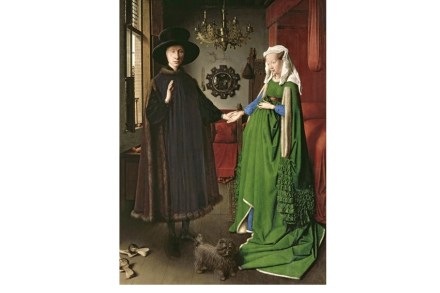The odd couple | 24 September 2011
Carola Hicks was an acclaimed art historian, and, as she phrased it, a biographer of objects, exploring the ‘lives’ of art-historical subjects from the Bayeux tapestry to the stained-glass windows of King’s College Chapel, and now Jan van Eyck’s ‘Arnolfini Wedding Portrait’, deftly weaving together the history of the times in which the objects were created, art-historical analysis and a study of their afterlife, both how the pieces were treated by successive generations and what the cultural resonances of those treatments might tell us today. ‘The Arnolfini Wedding Portrait’, painted by Jan van Eyck in 1434, may or may not be a portrait of a couple named Arnolfini, and may







